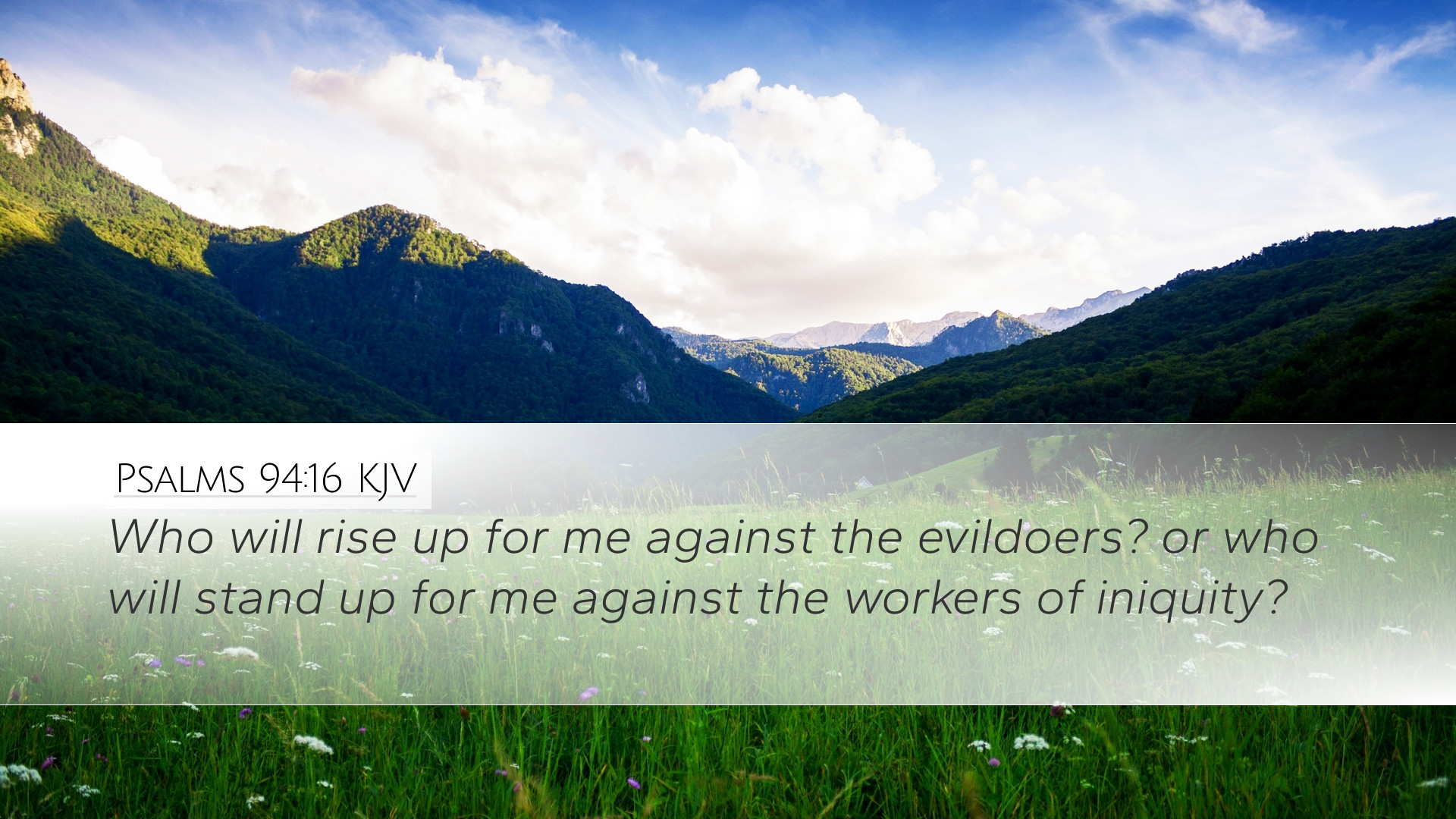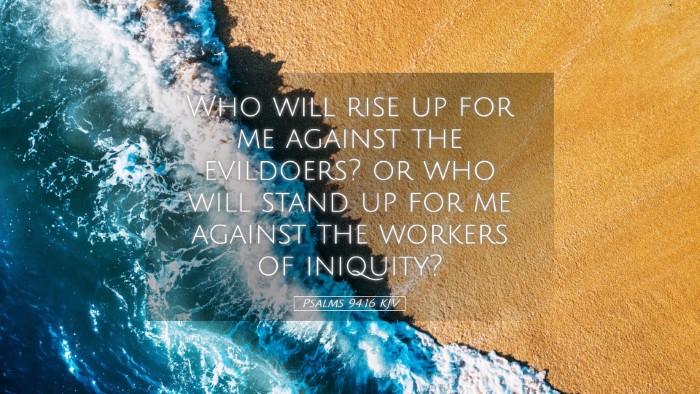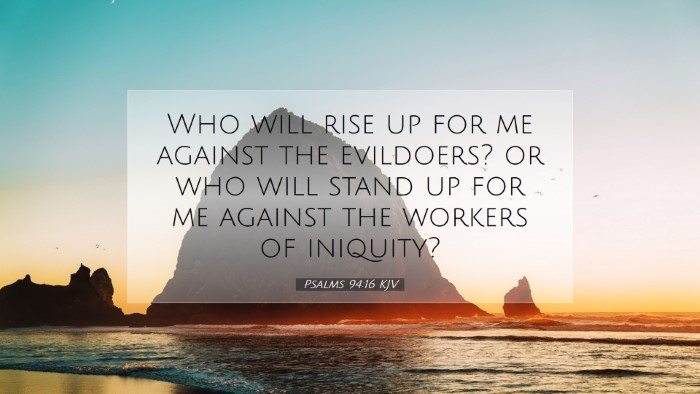Psalms 94:16 Commentary
Verse Context: Psalms 94:16 states, "Who will rise up for me against the evildoers? Or who will stand up for me against the workers of iniquity?" This verse emerges from a profound sense of urgency and a call for divine justice amidst oppression.
Introduction
The psalmist here articulates a deep, communal lament, reflecting a struggle against the injustices that afflict the faithful. In light of the public domain commentaries by Matthew Henry, Albert Barnes, and Adam Clarke, this verse invites a multifaceted exploration, addressing the role of divine support, the human condition, and the nature of righteousness in the face of evil.
Overview of Commentaries
This section provides insights from three notable commentaries, synthesizing their perspectives on Psalms 94:16.
Matthew Henry's Commentary
Matthew Henry emphasizes the necessity for allies in the battle against evil. He notes, "When a godly person perceives wrongs, he feels compelled to seek assistance from the Lord and from fellow believers." This reflects the communal aspect of faith; the struggle against iniquity is not an isolated endeavor. The psalmist, in asking who will stand up, recognizes the need for divine intervention and just support from others in faith. Henry further posits that this call to action serves not merely as a complaint but as an earnest request for unity and courage in righteousness.
Albert Barnes' Notes
Albert Barnes offers a nuanced interpretation regarding the identity of the 'evildoers' referred to in the passage. He suggests that these evildoers are often those in power who execute injustice under the guise of authority. Barnes states, "There is a constant battle between good and evil, and it is the responsibility of the faithful to stand firm against those who promote unrighteousness." His commentary highlights the moral imperative for believers to resist tyranny and injustice, asserting that a faithful community will not passively accept moral corruption but will actively confront it, led by God’s guidance.
Adam Clarke's Commentary
Adam Clarke delves deeply into the psychological and spiritual dimensions that accompany moral struggles. He articulates the despair that often accompanies the recognition of evil. He observes, "The plea for intervention underscores a moment of vulnerability where the faithful feel outnumbered or overwhelmed." Clarke suggests that the psalmist's question reflects a profound dependence on God’s power to deliver justice and protect the innocent. He highlights that the recognition of one’s limitations in the face of evil is pivotal; it is not merely a call to arms but an acknowledgment of human frailty that necessitates divine strength.
Thematic Implications
The inquiry posed in Psalms 94:16 reflects several critical themes relevant for pastors, students, and scholars:
- Divine Justice: The verse insists upon the need for divine involvement in addressing injustice. It calls believers to trust in God’s capacity to enact justice when human powers fail.
- Community of Faith: It underscores the significance of collective action in opposition to evil. The plea is against isolation; it beckons the faithful to unite.
- Human Responsibility: Believers are urged not only to identify evils but also to actively resist them. This forms a dual responsibility: relying on God while taking a stand.
Practical Applications for Today's Believers
The insights derived from these commentaries can fuel practical theological reflections and actions:
- Encouragement to Engage: Church leaders must encourage congregations to confront societal injustices actively, fostering environments where justice is a priority.
- Fostering Unity: Building a community that represents diverse voices and backgrounds can reflect the unity called for in Psalms 94:16.
- Prayer and Intercession: Pastors and congregants alike can dedicate time for prayer, invoking God’s strength to aid their resistance against societal ills.
Conclusion
As we reflect on Psalms 94:16, we are reminded of the enduring struggle between righteousness and evil. The compelling questions posed by the psalmist resonate into our current socio-political climate, challenging us to evaluate our roles as agents of justice. In conjunction with the profound insights from Henry, Barnes, and Clarke, this passage serves as both a lamentation and a compelling call to action—inviting the faithful to rise, stand, and trust in God’s overarching sovereignty in the fight for righteousness.


